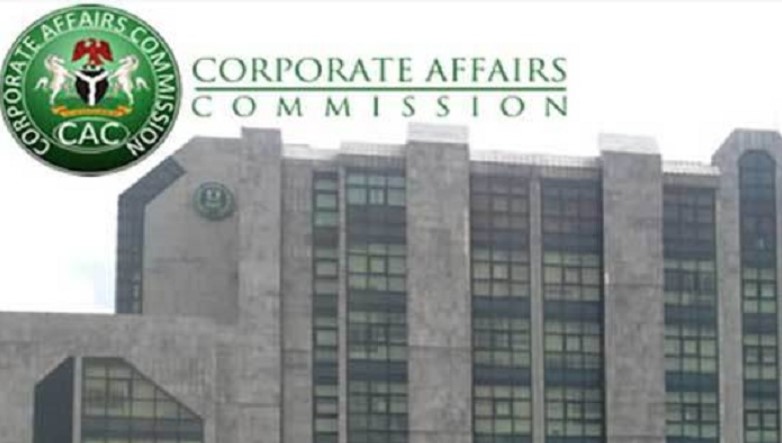CAC Postpones New Service Fees Implementation to October 1, 2025, Amid Transitional Challenges
August 31, 2025, Abuja, Nigeria – The Corporate Affairs Commission (CAC) of Nigeria has announced a further postponement of its revised service fee structure, originally set to take effect on August 1, 2025, and later delayed to September 1, 2025. The new implementation date is now October 1, 2025, as the CAC addresses ongoing challenges with its upgraded Company Registration Portal. This decision, prompted by user feedback and technical difficulties, has sparked discussions across Nigeria and among Indian businesses with interests in Nigeria, given the growing economic ties between the two nations. Here’s a detailed look at the development and its implications.
Details of the Postponement
The CAC’s decision to shift the implementation of new service fees to October 1, 2025, was announced in a public notice on August 30, 2025, as reported by Nairametrics and Daily Post Nigeria. The delay follows significant user challenges with the CAC’s AI-powered Company Registration Portal, launched on June 30, 2025, to streamline business registration. Issues include difficulties with document downloads, payment processing, post-incorporation filings for business names, and uploading required documents. The CAC stated, “In consideration of feedback from our valued customers and stakeholders, we have postponed the enforcement of new fees and penalties for document downloads beyond seven days to October 1, 2025.”
The revised fees, first announced on June 17, 2025, affect post-incorporation services such as voluntary company strike-offs (now ₦100,000 from ₦25,000), historical search reports (₦30,000 from ₦20,000), and certified true copies (₦5,000 per copy). Registration costs for new businesses remain unchanged, providing some relief for startups. The CAC emphasized that the delay aims to ensure a “seamless user experience” during the portal’s transition, with technical teams working to stabilize the system without a full shutdown.
Implications for Businesses
The postponement offers temporary relief for Nigerian businesses, particularly small and medium enterprises (SMEs), which expressed concerns about the steep fee hikes—some up to 300%. For example, ica.ng reported that businesses planning to strike off companies or request certified documents should act before October 1 to avoid higher costs. The delay allows companies to complete outstanding filings at current rates, a strategy echoed by Qflex Digital, which advised budgeting for future compliance costs.
For Indian businesses operating in Nigeria or planning to enter the market, this delay provides a window to navigate the CAC’s requirements at lower costs. India-Nigeria trade, valued at $14.7 billion in 2024 per the Economic Times, includes significant Indian investments in pharmaceuticals, IT, and agriculture. Companies like Tata and Airtel Nigeria can leverage this period to finalize registrations or filings before the new fees take effect. However, the portal’s technical issues may pose challenges for Indian firms accustomed to India’s MCA21 portal, which, while not perfect, is more established.
Reactions and Broader Context
The announcement has drawn mixed reactions. On X, Nigerian users like @BusinessNaija praised the CAC for listening to stakeholders, writing, “Good move by CAC to delay fees—shows they’re hearing SMEs out.” Others, like @LagosEntrepreneur, expressed frustration, noting, “Fix the portal first before hiking fees. Businesses are struggling.” In India, where regulatory changes like GST updates are closely watched, the CAC’s challenges resonate with local discussions about digital infrastructure, as seen in posts like @IndiaInc’s call for “seamless e-governance” on X.
The delay aligns with broader trends in Nigeria, where government agencies like the National Identity Management Commission (NIMC) have also adjusted fees due to economic pressures, as noted in Nairametrics. Nigeria’s inflation rate, hovering at 33.4% in July 2025 per Reuters, has driven operational cost increases, justifying the CAC’s fee review but complicating its rollout.
What’s Next
- Portal Stabilization: The CAC is working with technical partners to resolve portal issues by October 1, 2025, aiming to improve document downloads, payment processing, and filings.
- Stakeholder Engagement: The CAC plans further consultations with businesses and legal professionals to refine the fee structure, as urged by the Nigerian Bar Association and SME advocacy groups per The Cheer News.
- Business Planning: Companies are advised to complete filings before October 1 to avoid higher fees. Indian firms should consult local experts like ica.ng to navigate compliance.
Why It Matters
The CAC’s postponement reflects the challenges of modernizing Nigeria’s corporate registry amid economic strain and technical hurdles. For Indian businesses, it’s a reminder to stay agile in navigating foreign regulatory landscapes, especially in key markets like Nigeria. The delay offers a strategic opportunity to manage costs but underscores the need for robust digital infrastructure, a concern echoed in India’s own e-governance efforts.
